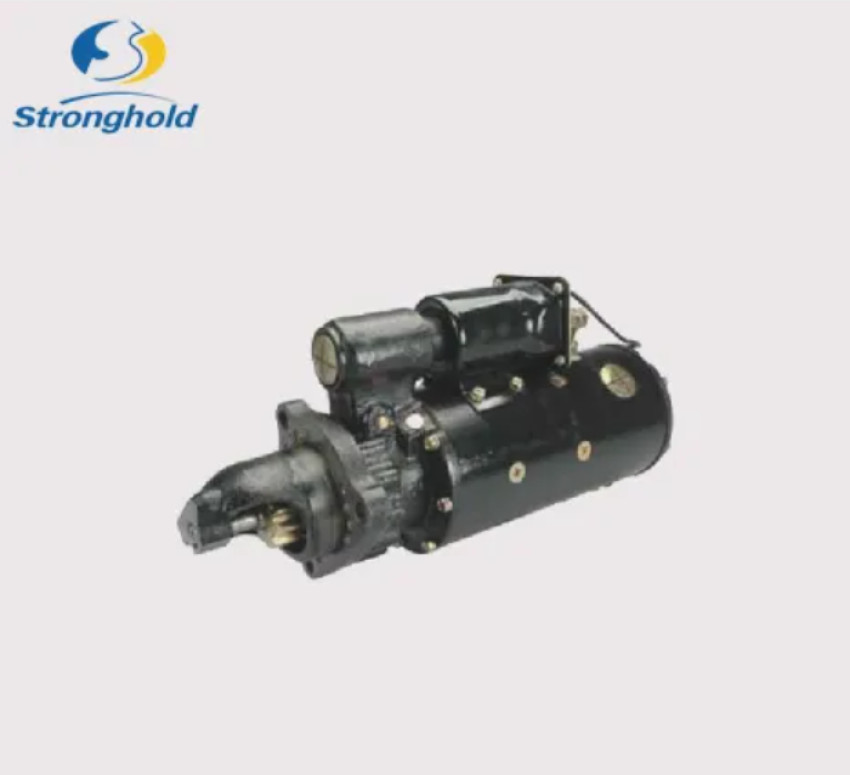
The car starter is a critical component of any vehicle, responsible for initiating the engine's combustion process. As a car owner, it's essential to understand the lifespan of your car starter and how to maintain it properly. In this article, we will explore the factors that influence the lifespan of a car starter, signs of a failing starter, and tips to extend its longevity.
Understanding the Car Starter
The car starter is an electrical motor that cranks the engine, allowing it to start. When you turn the ignition key or press the start button, a signal is sent to the starter, engaging the flywheel and initiating the engine's combustion cycle. It is a durable component, but like any other mechanical part, it has a finite lifespan.
Factors Influencing the Lifespan
Several factors can impact how long a car starter lasts:
1. Usage Patterns: Frequent short-distance trips and numerous engine starts in a short time can wear down the starter faster.
2. Environmental Conditions: Extreme temperatures, both hot and cold, can affect the starter's performance and lifespan.
3. Electrical Issues: Problems with the battery, alternator, or electrical connections can strain the starter and reduce its lifespan.
4. Manufacturer Quality: The quality of the starter itself, as well as the brand, can play a role in determining how long it will last.
Signs of a Failing Starter
Recognizing the signs of a failing starter is crucial to prevent unexpected breakdowns. Look out for the following indicators:
1. Clicking Sound: A clicking noise when turning the ignition may indicate a worn-out starter solenoid.
2. Grinding Noise: If you hear a grinding noise during startup, it could suggest a damaged starter gear.
3. Frequent Engine Cranks: Difficulty in starting the engine or multiple attempts required to start the car may point towards a faulty starter.
4. Intermittent Starting Problems: If the car starts inconsistently, especially when the engine is warm, it could be a sign of a failing starter.
Maintenance and Longevity
While you can't prevent a car starter from eventually wearing out, proper maintenance can extend its lifespan:
1. Regular Inspection: Include the starter in routine vehicle check-ups, allowing a professional to examine it for any signs of wear or damage.
2. Battery Maintenance: Ensure your car's battery is in good condition, as a weak or faulty battery can put extra strain on the starter.
3. Temperature Considerations: If you live in an extreme climate, consider using engine block heaters in cold weather or parking in shaded areas during hot weather to reduce stress on the starter.
4. Avoid Overuse: Limit excessive use of accessories (lights, radio, etc.) while the engine is off, as it puts additional strain on the starter.
Replacement and Repair
When a starter shows significant signs of wear or fails to function correctly, it's crucial to have it repaired or replaced promptly. Consult a qualified mechanic or automotive technician to assess the situation and provide the appropriate solution.
Conclusion
The lifespan of a car starter depends on various factors, such as usage patterns, environmental conditions, and electrical health. By understanding the signs of a failing starter and implementing proper maintenance practices, car owners can extend the lifespan of this vital component. Regular inspections, battery maintenance, and mindful driving habits can help prevent unexpected breakdowns and ensure a reliable starting experience. When in doubt, always consult with a professional to address any concerns and keep your vehicle running smoothly for years to come.
If you need a reliable car starter supplier, finding the right partner is crucial to your automotive business. In a competitive market, it is important to work with a trusted supplier that offers high quality starters. Stronghold can meet your specific requirements with a wide selection of starters, competitive pricing, and excellent customer service.



